Author’s note: The following is an article I’ve written for an Easton newsletter being set up in the new year. I’ve posted it here because I mention Bristol Wireless and their contribution to recycling waste electrical and electronic equipment towards the end.
The Problem
More than a million tonnes of waste electrical and electronic equipment (WEEE) is created each year, and the amount is growing three times faster than any other type of waste. In July 2007 it was estimated that 90% of WEEE ended up in landfills, where its toxic components and non-biodegradable parts pose serious environmental concerns.
Computers in particular become obsolete quicker than any other consumer product. When Microsoft’s latest operating system (Vista) was released in January 2007, the Green Party suggested that “future archaeologists will be able to identify a ‘Vista Upgrade Layer’ when they go through our landfill sites.”
Vista uses more power than previous Windows incarnations because it scours your computer every few milliseconds to ensure that no ‘premium’ video or sound is being decoded. This means that new power-guzzling, costly hardware is required. The Green Party’s Sian Berry predicted that tonnes of perfectly functional monitors, video cards and whole computers would be dumped, due to lacking “the paranoid lock down mechanisms Vista forces you to use”.
Throughout the entire range, new versions of Microsoft have required twice as many system resources to run as their predecessors. Such resource-hungry programs are known as ‘bloatware‘.
The Solution?
European Regulations implemented in July 2007 mean that manufacturers and distributors of electronic goods will have to pay for the recycling or safe disposal of their products. Retailers will have to provide ways to return old gadgets when their customers upgrade and many civic amenity sites will provide facilities specifically for dealing with electronic waste. Initial UK targets require the safe disposal or reuse of 4kg of techno waste per person per year, approximately 25% of the total amount.
Good news? Well, maybe a step in the right direction, but a closer look at UK law shows that the legislation may not go far enough. Manufacturers are not responsible for their own products, but rather for their share of the market; they are able to join a scheme allowing them to pay a percentage of the total cost of recycling. “This means producers with better-designed products are financially penalised,” says Greenpeace, as savings from environmentally-conscious products benefit everyone, regardless of their own green track record.
UK law also allows retailers to contribute to civic amenity sites and inform customers of where they can recycle their WEEE, instead of taking waste back themselves. In fact they’re quite within their rights to charge you for any equipment they do collect.
What’s Going On Round Here
Byteback is a Bristol-based scheme that has been assisting companies in achieving their legal obligation to recycle IT equipment since 2001. They are fully WEEE compliant and operate under the guidelines of Environment Agency policy.
On receiving machines, Byteback irrecoverably destroy data on their hard disks, whilst Inside Out Trust collects the remaining equipment to be refurbished by inmates in local prisons. The hard disks and refurbished equipment are reunited at a depot in Cheltenham where they are packed ready for distribution via Byteback’s partners, IT Schools Africa and Computers for African Schools.
Computers that can’t be fixed are stripped for working parts; the remaining broken equipment is sent to specialist recyclers who recover raw materials from printed circuit boards, plastic and mixed metals. Byteback use some of the recovered parts to repair and upgrade PCs — a service available to anyone at the cost of £20 per hour. If they can’t fix your computer, they won’t charge you and any bits they use are thrown in for free.
Some of the machines recycled by Byteback end up with Bristol Wireless (a volunteer run co-operative who provided the internet connections at the Chelsea Inn and Easton Community Centre, to name but two) who install them with a Linux operating system called Debian; Debian is less power-hungry than Microsoft systems and is free to use. The computers come complete with web browser, email client, photo-editing software, anti-virus software and an office suite compatible with Microsoft Office, consisting of word processor, spreadsheet program and presentation software. These bloatware-free computers are available at the modest sum of £50 each (news passim).
So, with companies like that on the case there’s no need to get caught in an endlessly expensive software/hardware upgrade spiral! To get in touch with them, use these details:-
Byteback:
URL: http://www.byteback.org.uk
Phone: Tel: 0173706456, Mob: 07917166905
Email: bytebackcomputerrecycling@gmail.com
Bristol Wireless:
URL: https://www.bristolwireless.net
Phone: 01173250067
Email: info@bristolwireless.net


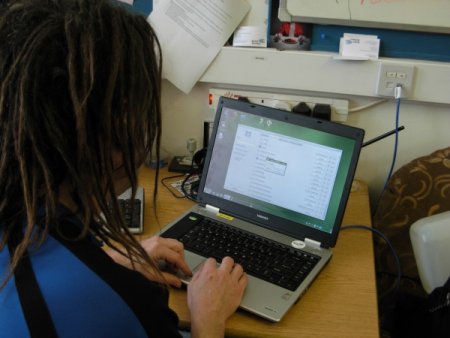
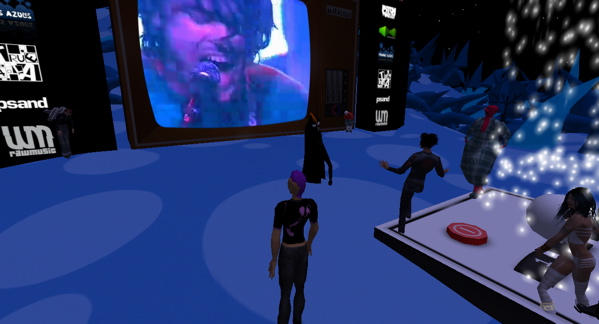


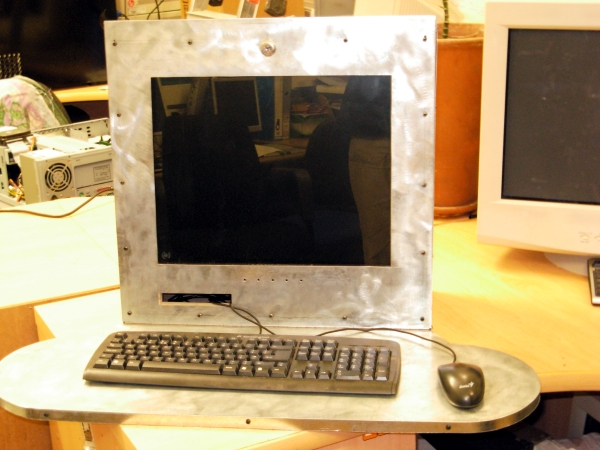
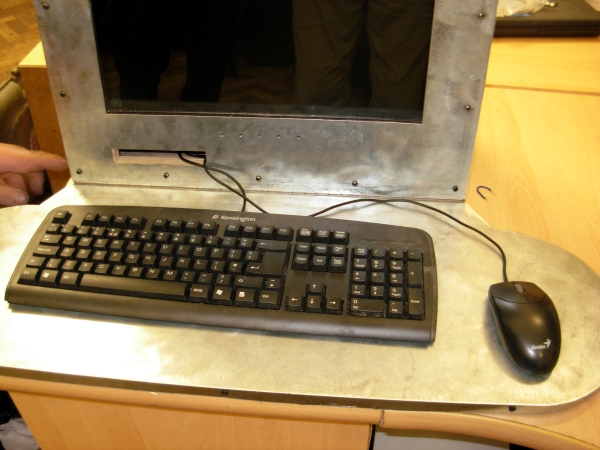
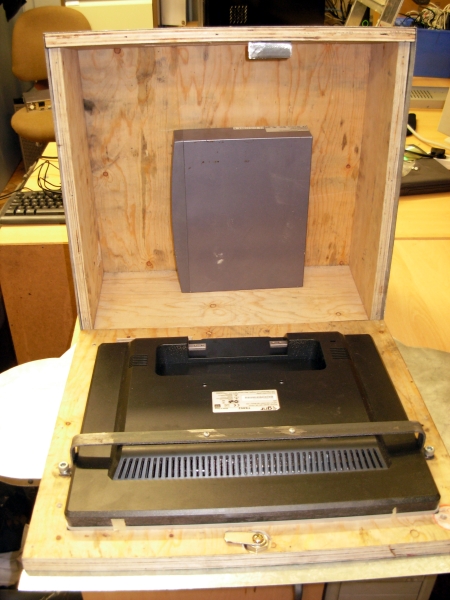
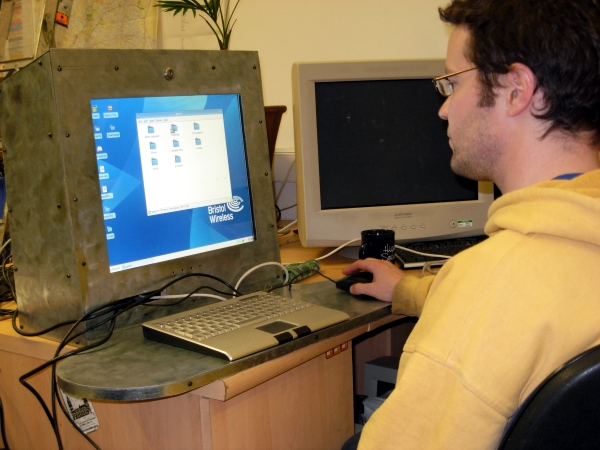
 Back in the autumn, Si, a good friend of Bristol Wireless and a couple of friends decided it would be worthwhile trying to establish a ‘Chaostreff’ (or ‘Chaos Meeting’) here in Bristol. Chaostreffs are Jim and your scribe from Bristol Wireless. According to the
Back in the autumn, Si, a good friend of Bristol Wireless and a couple of friends decided it would be worthwhile trying to establish a ‘Chaostreff’ (or ‘Chaos Meeting’) here in Bristol. Chaostreffs are Jim and your scribe from Bristol Wireless. According to the 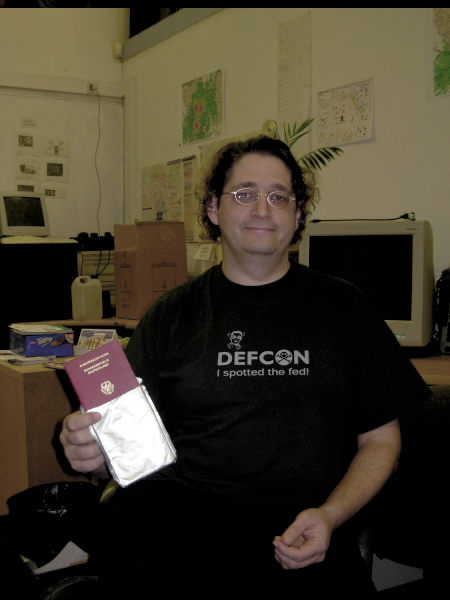
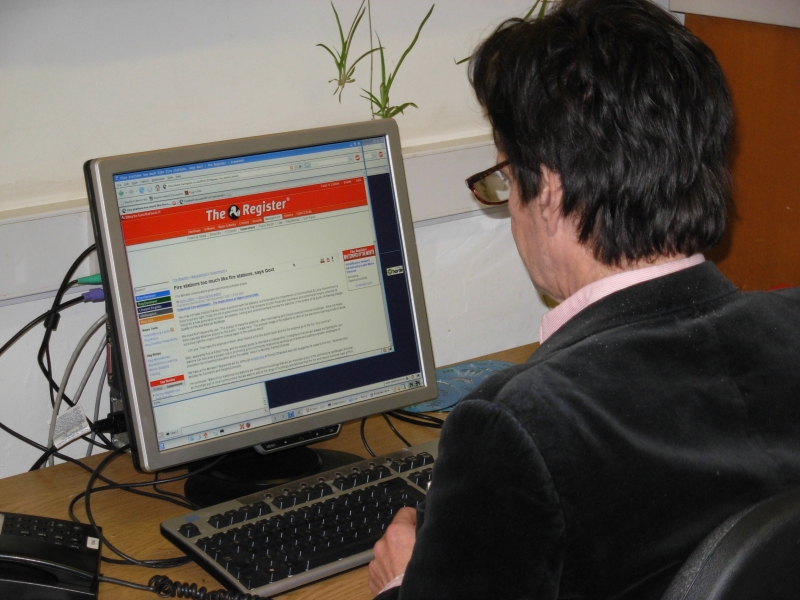

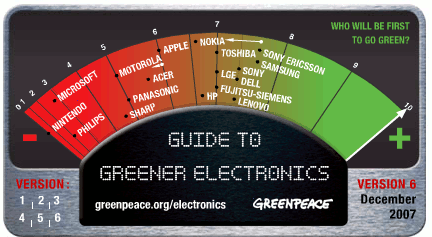
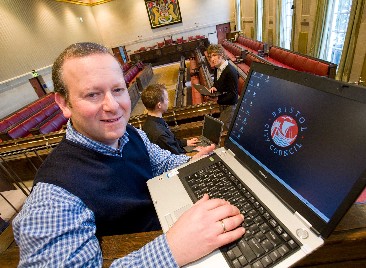 News arrives from
News arrives from  On 29th November 2007 we will be running a beginners’ training course from 7pm – 9pm at St. Werburghs Community Centre, Horley Road, St. Werburghs. The course will cover logging in and out, the desktop, the file system, word processing, setting up and using web based email and surfing the World Wide Web. Bristol Wireless members will be on hand to offer friendly advice and get you confidently using a machine and enjoying the internet even if you’ve never used either before.
On 29th November 2007 we will be running a beginners’ training course from 7pm – 9pm at St. Werburghs Community Centre, Horley Road, St. Werburghs. The course will cover logging in and out, the desktop, the file system, word processing, setting up and using web based email and surfing the World Wide Web. Bristol Wireless members will be on hand to offer friendly advice and get you confidently using a machine and enjoying the internet even if you’ve never used either before.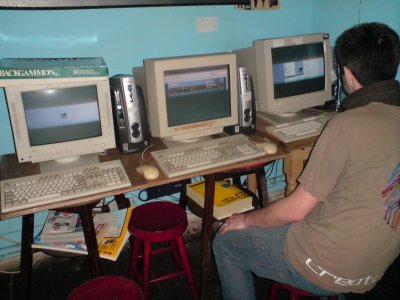
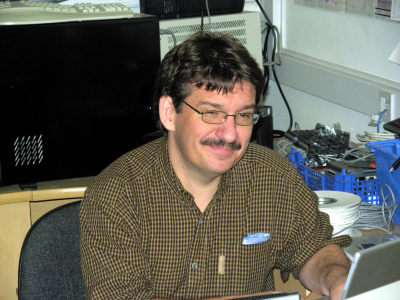 On Tuesday 6th November, Bristol Wireless received a visit from Tim Erickson of
On Tuesday 6th November, Bristol Wireless received a visit from Tim Erickson of 
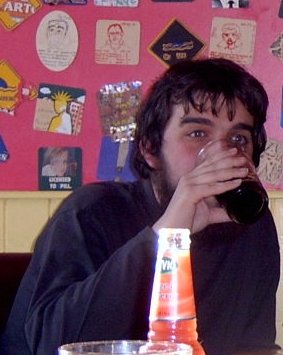 At the start of the weekend Matt Toseland sent a message to our general list announcing he wouldn’t be able to make our monthly meeting in November. Apart from being a bit early, there’s nothing unusual in apologies from people unable to attend meetings. However, Matt has a good excuse: he’s moving to Scarborough (in God’s own county according to the locals – Ed. 😉) – a slightly longer walk to the lab than his normal jaunt from Fishponds.
At the start of the weekend Matt Toseland sent a message to our general list announcing he wouldn’t be able to make our monthly meeting in November. Apart from being a bit early, there’s nothing unusual in apologies from people unable to attend meetings. However, Matt has a good excuse: he’s moving to Scarborough (in God’s own county according to the locals – Ed. 😉) – a slightly longer walk to the lab than his normal jaunt from Fishponds.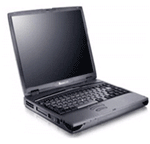 Bristol Wireless was recently contacted on behalf of the
Bristol Wireless was recently contacted on behalf of the